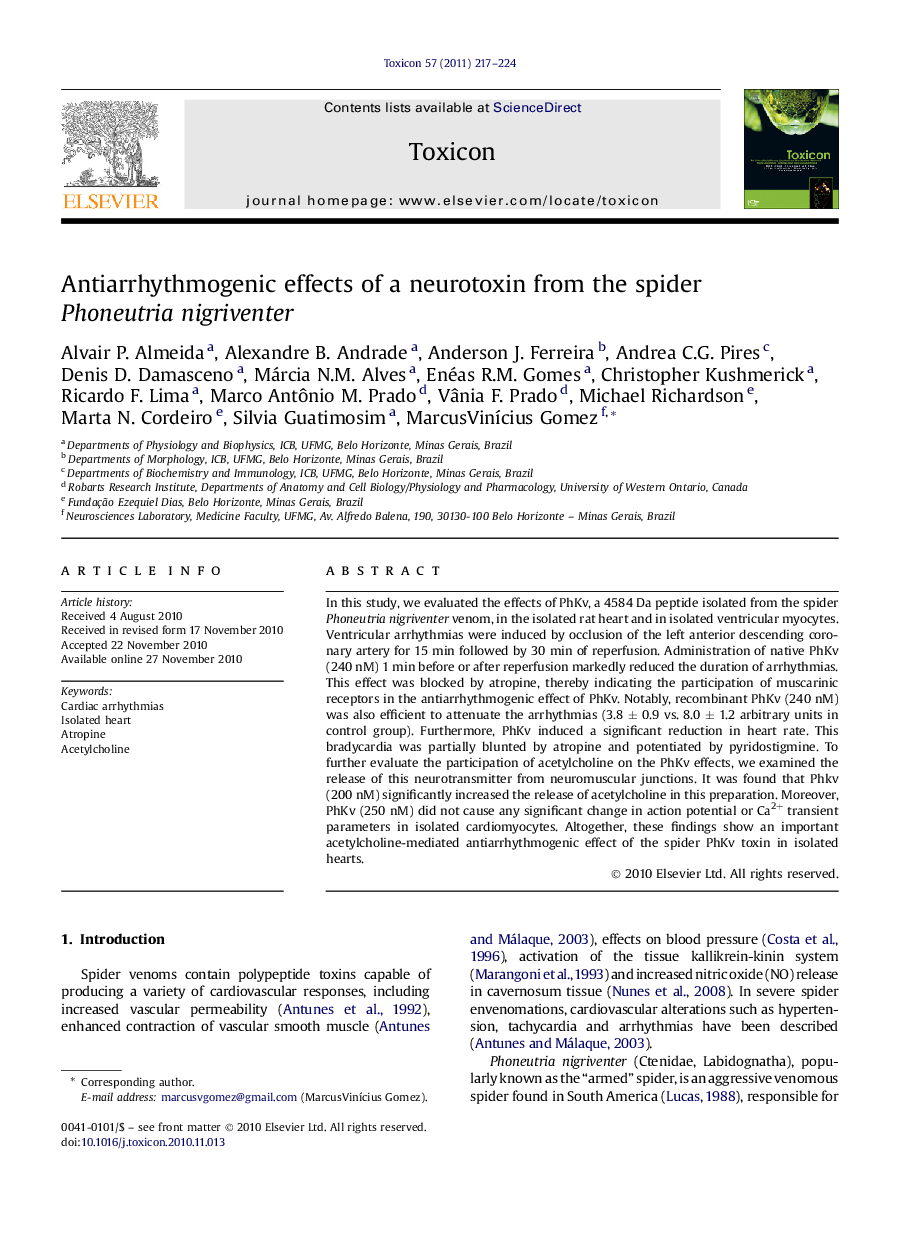| Article ID | Journal | Published Year | Pages | File Type |
|---|---|---|---|---|
| 10881308 | Toxicon | 2011 | 8 Pages |
Abstract
In this study, we evaluated the effects of PhKv, a 4584 Da peptide isolated from the spider Phoneutria nigriventer venom, in the isolated rat heart and in isolated ventricular myocytes. Ventricular arrhythmias were induced by occlusion of the left anterior descending coronary artery for 15 min followed by 30 min of reperfusion. Administration of native PhKv (240 nM) 1 min before or after reperfusion markedly reduced the duration of arrhythmias. This effect was blocked by atropine, thereby indicating the participation of muscarinic receptors in the antiarrhythmogenic effect of PhKv. Notably, recombinant PhKv (240 nM) was also efficient to attenuate the arrhythmias (3.8 ± 0.9 vs. 8.0 ± 1.2 arbitrary units in control group). Furthermore, PhKv induced a significant reduction in heart rate. This bradycardia was partially blunted by atropine and potentiated by pyridostigmine. To further evaluate the participation of acetylcholine on the PhKv effects, we examined the release of this neurotransmitter from neuromuscular junctions. It was found that Phkv (200 nM) significantly increased the release of acetylcholine in this preparation. Moreover, PhKv (250 nM) did not cause any significant change in action potential or Ca2+ transient parameters in isolated cardiomyocytes. Altogether, these findings show an important acetylcholine-mediated antiarrhythmogenic effect of the spider PhKv toxin in isolated hearts.
Related Topics
Life Sciences
Biochemistry, Genetics and Molecular Biology
Biochemistry, Genetics and Molecular Biology (General)
Authors
Alvair P. Almeida, Alexandre B. Andrade, Anderson J. Ferreira, Andrea C.G. Pires, Denis D. Damasceno, Márcia N.M. Alves, Enéas R.M. Gomes, Christopher Kushmerick, Ricardo F. Lima, Marco Antônio M. Prado, Vânia F. Prado, Michael Richardson,
